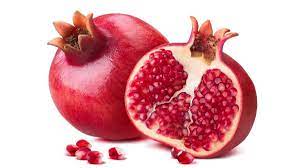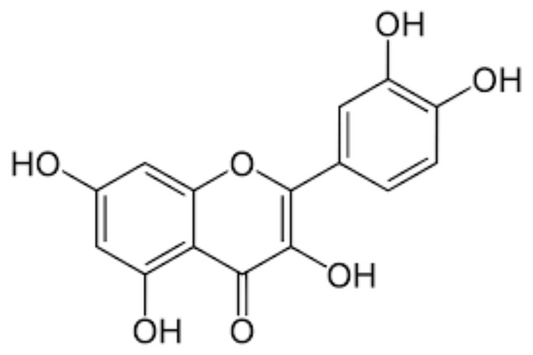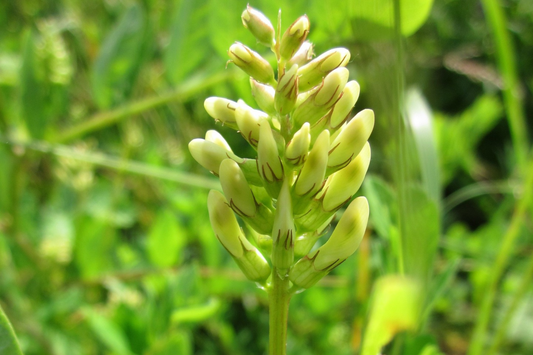Slow Down Aging Naturally with Astragalus: Harnessing the Power of Traditional Medicine
Astragalus is an herb that has been used in traditional Chinese medicine for thousands of years. It is known for its ability to help the body resist stress and fight disease. More recently, research has been conducted on the anti-aging effects of astragalus. In this article, we will explore the role of astragalus in anti-aging and how it can benefit your overall health.
One of the keyways that astragalus may help with anti-aging is through its ability to protect telomeres. Telomeres are the protective caps on the end of chromosomes that help to maintain the integrity of the DNA. As we age, our telomeres naturally become shorter, which can lead to cellular aging and ultimately disease. Astragalus has been shown to protect telomeres from degradation, which may help to slow the aging process and improve overall health.1-3 For example, in a study published in Biomedicine Journal, researchers have studied a root extract called hydroethanolic root extract (HRE) from Astragalus mongholicus, known to stimulate telomerase activity. They compared the effects of this extract with danazol, a drug commonly used for treating certain conditions. The HRE was found to contain various beneficial components such as astragalosides, flavonoids, amino acids, and sugars. In an experiment involving lymphocytes from healthy donors with short telomeres, the researchers exposed the cells to HRE or danazol for three days. They observed that both treatments led to significant elongation of telomeres, with the HRE showing less toxicity. The results suggest that the HRE could potentially be used to manage age-related diseases by promoting telomere elongation through telomerase-dependent mechanisms.1
In addition to its role in telomere protection, astragalus also has antioxidant properties. Antioxidants help to protect the body from damage caused by free radicals, which are unstable molecules that can cause cellular damage and contribute to aging. Astragalus contains compounds such as flavonoids and saponins that act as antioxidants, helping to protect the body from oxidative stress.4,5
Astragalus also has antibacterial and anti-inflammatory properties. Inflammation is a natural response to injury or infection, but chronic inflammation can contribute to a variety of health problems, including cardiovascular disease and cancer. Astragalus has been shown to reduce inflammation in the body, which may help to reduce the risk of these diseases.6-9
Another way that astragalus may benefit anti-aging is through its ability to boost the immune system. As we age, our immune system naturally becomes weaker, making us more susceptible to infections and diseases. Astragalus has been shown to improve immune function, helping to fight off infections and potentially reducing the risk of disease.10,11
Some studies have also indicated that astragalus may have anti-cancer properties. The herb has been shown to induce apoptosis, or programmed cell death, in cancer cells, and to inhibit the growth of tumors. While more research is needed in this area, these findings suggest that astragalus may be a promising natural treatment for cancer.12,13 In a study in the Jounral of Material Science and Engineering, researchers investigated the effects of astragalus polysaccharide (APS) on breast cancer cells and macrophages. While APS did not directly inhibit the growth of MCF-7 cells, it activated macrophages (RAW264.7) that exhibited anticancer activity. The activated macrophages showed cell proliferation inhibition, caused cell cycle arrest, and regulated apoptosis-related genes. APS also increased the levels of nitric oxide (NO) and tumour necrosis factor-alpha (TNF-α), which induce tumour cell apoptosis. These findings suggest that APS can activate macrophages to release NO and TNF-α, effectively blocking cancer cell growth.12
So, how can you incorporate astragalus into your daily routine? Astragalus is available in a variety of forms, including capsules, tinctures, and teas.
Overall, astragalus shows promise as a natural anti-aging supplement. Its ability to protect telomeres, fight inflammation, and boost the immune system may help to slow the aging process and improve overall health. While more research is needed in this area, astragalus is a safe and natural way to support your overall well-being.
References:
- Guinobert I, Blondeau C, Colicchio B, Oudrhiri N, Dieterlen A, Jeandidier E, Deschenes G, Bardot V, Cotte C, Ripoche I, Carde P. The use of natural agents to counteract telomere shortening: effects of a multi-component extract of astragalus mongholicus bunge and danazol. Biomedicines. 2020 Feb 12;8(2):31.
- Liu P, Zhao H, Luo Y. Anti-aging implications of Astragalus membranaceus (Huangqi): a well-known Chinese tonic. Aging and disease. 2017 Dec;8(6):868.
- Alt C, Tsapekos M, Perez D, Klode J, Stoffels I. An Open-Label Clinical Trial Analyzing the Efficacy of a Novel Telomere-Protecting Antiaging Face Cream. Cosmetics. 2022 Sep 9;9(5):95.
- Huang YF, Lu L, Zhu DJ, Wang M, Yin Y, Chen DX, Wei LB. Effects of astragalus polysaccharides on dysfunction of mitochondrial dynamics induced by oxidative stress. Oxidative Medicine and Cellular Longevity. 2016 Jan 1;2016.
- Liu Y, Liu F, Yang Y, Li D, Lv J, Ou Y, Sun F, Chen J, Shi Y, Xia P. Astragalus polysaccharide ameliorates ionizing radiation-induced oxidative stress in mice. International journal of biological macromolecules. 2014 Jul 1;68:209-14.
- Auyeung KK, Han QB, Ko JK. Astragalus membranaceus: a review of its protection against inflammation and gastrointestinal cancers. The American journal of Chinese medicine. 2016 Feb 2;44(01):1-22.
- Dong N, Li X, Xue C, Zhang L, Wang C, Xu X, Shan A. Astragalus polysaccharides alleviates LPS‐induced inflammation via the NF‐κB/MAPK signaling pathway. Journal of cellular physiology. 2020 Jul;235(7-8):5525-40.
- JIANG JB, QIU JD, YANG LH, HE JP, Smith GW, LI HQ. Therapeutic effects of astragalus polysaccharides on inflammation and synovial apoptosis in rats with adjuvant‐induced arthritis. International Journal of Rheumatic Diseases. 2010 Oct;13(4):396-405.
- Shojaii A, Motaghinejad M, Norouzi S, Motevalian M. Evaluation of anti-inflammatory and analgesic activity of the extract and fractions of Astragalus hamosus in animal models. Iranian Journal of Pharmaceutical Research: IJPR. 2015;14(1):263.
- Liu ZG, Xiong ZM, Yu XY. Effect of astragalus injection on immune function in patients with congestive heart failure. Zhongguo Zhong xi yi jie he za zhi Zhongguo Zhongxiyi jiehe zazhi= Chinese journal of integrated traditional and Western medicine. 2003 May 1;23(5):351-3.
- Feng S, Ding H, Liu L, Peng C, Huang Y, Zhong F, Li W, Meng T, Li J, Wang X, Li Y. Astragalus polysaccharide enhances the immune function of RAW264. 7 macrophages via the NF-κB p65/MAPK signaling pathway. Experimental and Therapeutic Medicine. 2021 Jan 1;21(1):1-.
- Li W, Song K, Wang S, Zhang C, Zhuang M, Wang Y, Liu T. Anti-tumor potential of astragalus polysaccharides on breast cancer cell line mediated by macrophage activation. Materials Science and Engineering: C. 2019 May 1;98:685-95.
- Lin S, An X, Guo Y, Gu J, Xie T, Wu Q, Sui X. Meta-analysis of astragalus-containing traditional Chinese medicine combined with chemotherapy for colorectal cancer: efficacy and safety to tumor response. Frontiers in oncology. 2019 Aug 13;9:749.




